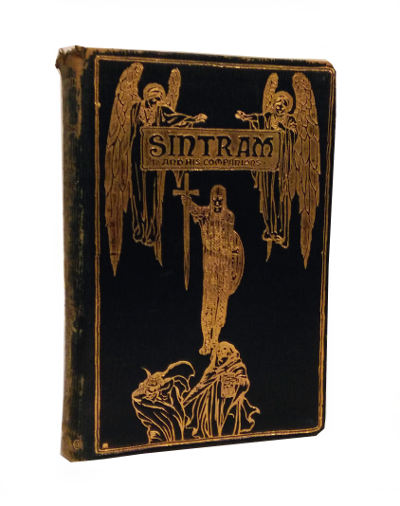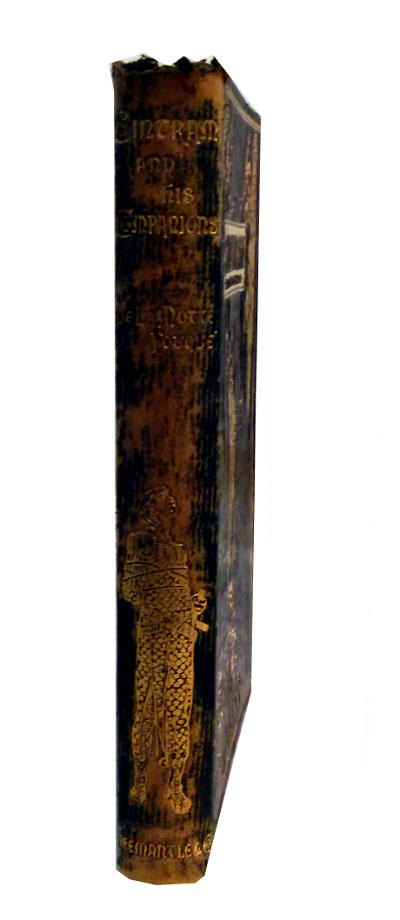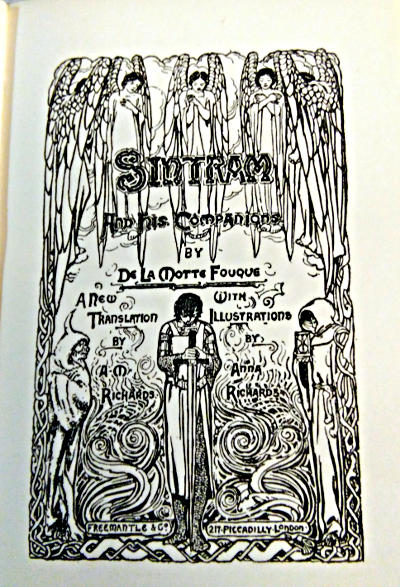A gothic romance of young Sintram, whose father is pagan and whose deceased mother is Christian, and the moral conflicts that ensue as a result. A weird and mildly spooky tale about Sintram’s choice between the Evil Spirit and Death, with mysterious supernatural beings.
About the author (from Wikipedia):
Friedrich Heinrich Karl de la Motte (12 February 1777 – 23 January 1843) was a German writer of the Romantic style.
After Dramatische Spiele von Pellegrin, his second work, Romanzen vom Tal Ronceval (1805), showed more plainly his allegiance to the romantic leaders, and in the Historie vom edlen Ritter Galmy (1806) he versified a 16th-century romance of medieval chivalry.
Sigurd der Schlangentödter, ein Heldenspiel in sechs Abentheuren (1808), was the first modern German dramatization of the Nibelung legend combining Icelandic sources such as the Volsunga Saga and the Middle High German Nibelungenlied. The play and its two sequels Sigurds Rache (1809) and Aslauga (1810) were published together under the title Der Held des Nordens in 1810. The trilogy brought Fouqé to the attention of the public, and had a considerable influence on subsequent versions of the story, such as Friedrich Hebbel’s Nibelungen and Richard Wagner’s Der Ring des Nibelungen.
These early writings indicate the lines which Fouqué’s subsequent literary activity followed; his interests were divided between medieval chivalry on the one hand and northern mythology on the other. In 1813, the year of the rising against Napoleon, he again fought with the Prussian army, and the new patriotism awakened in the German people left its mark upon his writings.
Between 1810 and 1815, Fouqué’s popularity was at its height; the many romances and novels, plays and epics which he produced with extraordinary rapidity, appealed greatly to the mood of the hour. Undine appeared around 1811, the only work by which Fouqué’s memory still lives today. A more comprehensive idea of his talent may, however, be obtained from the two romances Der Zauberring (1813) and Die Fahrten Thiodolfs des Isländers (1815).





